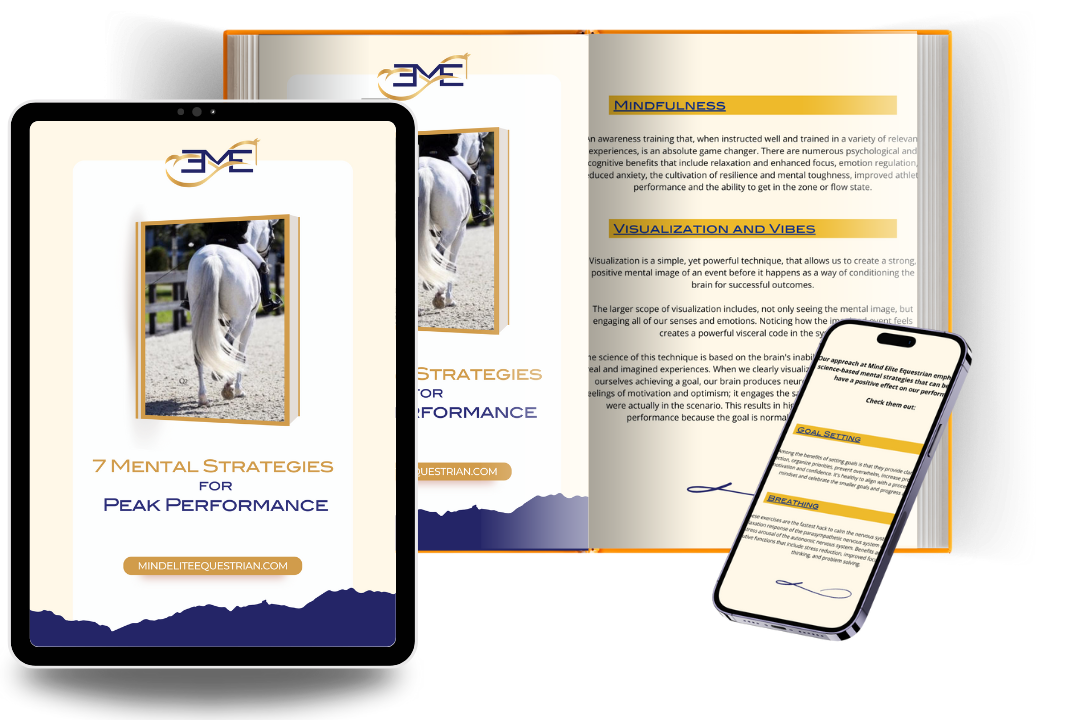The Neuroscience of Gratitude: How Thankfulness Shapes the Equestrian Mind
Nov 12, 2025
by Cynthia Dawn
Gratitude is more than saying thank you. It’s neuroscience.
Every time you pause to recognize what you are grateful for, whether it is your horse’s soft eye, a quiet moment in the barn, or a lesson that finally clicks, your brain responds. It releases dopamine and serotonin, the neurotransmitters responsible for feelings of happiness, balance, and motivation.
These same chemicals help you ride better. Dopamine fuels focus and drive. Serotonin stabilizes mood and supports calm under pressure. When you activate them through gratitude, you are not just lifting your spirits; you are training your brain for resilience and flow.
The Brain-to-Barn Power of Gratitude
When you intentionally look for the good, like new skills, moments of connection, or a harmonious lesson, your brain begins to rewire itself. Instead of scanning for what went wrong, it starts to notice what went right.
This shift activates the parasympathetic nervous system, the body’s rest and digest mode. Your breathing steadies, your muscles relax, and your horse feels that change because communication becomes clearer, your timing improves, and your awareness sharpens.
A grateful mind operates from calm confidence rather than pressure or perfectionism. It helps you stay present so you can notice subtle feedback from your horse and respond with clarity instead of reaction. Gratitude does more than change your outlook; it changes your physiology, creating the conditions for your best rides to emerge.
Bringing Gratitude into Your Riding Routine
Start your ride with intention - Before you mount, take a breath and think of one thing you appreciate. Keep it simple (your horse’s try, the weather, or the mere opportunity to ride).
End your ride with reflection - Write down three things that went well; they don’t have to be perfect moments, only signs of progress.
Express appreciation - Tell your trainer, groom, or barn friend what you value about them. Gratitude strengthens connection and builds trust.
Be present to small details - Notice the sound of hoofbeats, the rhythm of your horse’s breath, or the sense of partnership that grows with every ride; gratitude thrives in awareness.
The Ripple Effect
Neuroscience shows that the more often you practice gratitude, the easier it becomes. You build new neural pathways that automatically seek positive cues. Over time, this can decrease anxiety, improve sleep, and enhance focus all of which positively effect athletic performance.
In the equestrian world, where mindset and emotional regulation directly affect your horse, gratitude is more than a mindset tool. It is a skill that strengthens the bond between horse and rider.
Each time you choose gratitude, you are training your brain for balance and clarity. You are cultivating a state of presence that allows you to ride with softness, connection, and trust.
Gratitude is not a luxury. It’s a performance advantage.
Connect with us at hello@mindeliteequestrian.com
Follow MEE on Instagram & Facebook
Get our FREE resource!

"7 Mental Strategies
for Peak Performance"
Our approach at Mind Elite Equestrian implements several science-based mental strategies that can be trained and have a positive effect on your performance.
Just enter your information below to get the checklist delivered to your inbox in the next 5 minutes.
By submitting this form you are agreeing to receive this free Checklist and be added to our mailing list for future communication. Your information is safe. Unsubscribe anytime.



